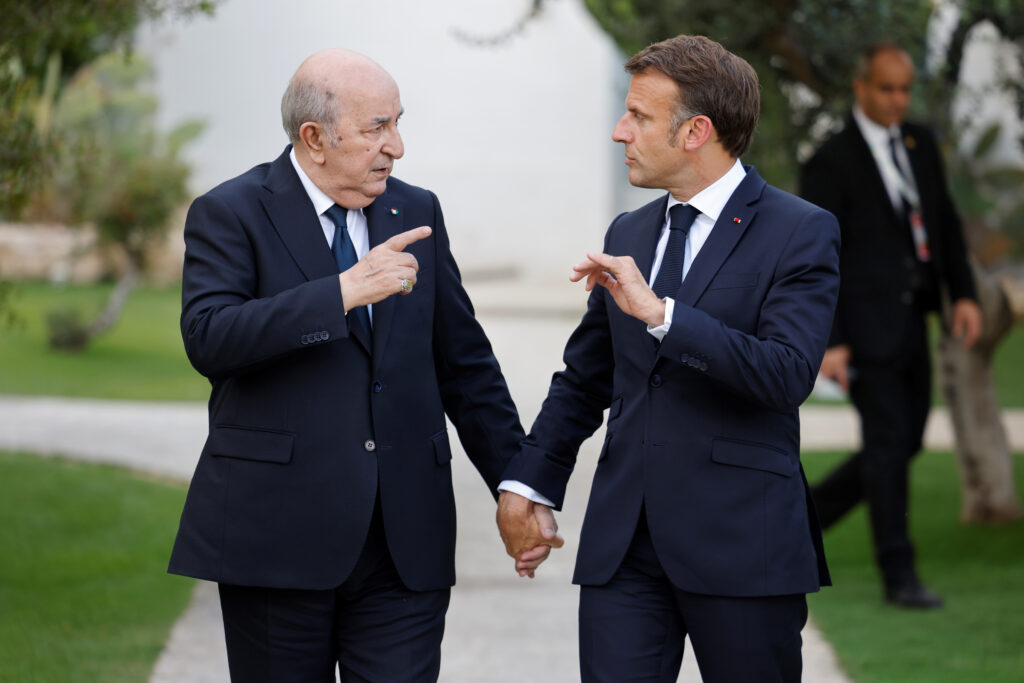The release of novelist Boualem Sansal has de-escalated a crisis in relations between France and its former colony Algeria, but much work remains to be done to normalise ties deeply scarred by history.Algerian-born Sansal, who received French citizenship in 2024, was released on Wednesday after over a year in prison on charges of seeking to undermine Algeria’s territorial integrity.French President Emmanuel Macron had repeatedly called for Sansal’s release, saying he was unjustly held. Some analysts believe Sansal was a victim of a dispute between Paris and Algiers over the Western Sahara. France now backs Morocco’s claim of sovereignty to the territory whereas Algeria supports the pro-independence Polisario Front.Following Sansal’s jailing, French officials arrested Algerian influencers in France on “terror” propaganda charges, and there were tit-for-tat expulsions of officials working in both countries.In the broader context, Algeria and France have yet to overcome the mutual recriminations left by the long 1954-1962 war that brought Algeria independence, as well as the legacy of over a century of French colonisation.Sansal may be free, but prominent French sports journalist Christophe Gleizes remains in an Algerian prison, sentenced to seven years for “glorifying terrorism” for having sought to interview an outlawed group.”We are entering a new phase,” said Stephane Romatet, the French ambassador to Algeria, after Sansal’s release.In a sign of the current crisis in ties, Romatet is currently not in Algeria, having been recalled by Paris for consultations this spring. He hopes, however, to return soon.- ‘Watchword is re-engagement’ -Romatet acknowledged that the crisis was sufficiently severe that it required a “third country of confidence” to secure Sansal’s release. Germany helped smooth the way, President Frank-Walter Steinmeier conducting negotiations with Algerian counterpart Abdelmadjid Tebboune. “The watchword now is re-engagement, with a dialogue that can take place discreetly, in a calm, peaceful, equal manner, but also with a view to results,” said Romatet.Both sides have a backlog of issues to tackle. Algeria — Africa’s largest nation by area whose territory extends from the Mediterranean deep into the Sahara — remains a vital security partner.France is unable to expel any Algerians back home due to the current crisis — the authorities there generally refuse to take them back.But the two countries are also nervously watching Algeria’s southwestern neighbour Mali, which has been hit by a jihadist blockade.There will be close scrutiny on whether Macron and Tebboune seek to break the ice with a phone call, or even a meeting — possibly at the G20 summit in Johannesburg later this month, where both are expected.”The G20 is an opportunity,” said one diplomat, speaking on condition of anonymit.However another, speaking on the same terms, told AFP: “No bilateral meeting is currently scheduled, but we are working on it.”Algeria will also be seeking to secure French and German support for the revision of the association agreement between Algiers and the European Union, Algeria’s largest trading partner.This treaty, in force since 2005, provides for the gradual and reciprocal elimination of import duties on goods.- ‘More than just a statement’ -Macron, France’s first president born after the colonial era, has always promised to work on remembrance and reconciliation against the background of the two countries’ painful shared history.The violations committed by French forces during the war of independence cast a long shadow in Algeria. So too, do the massacres carried out in the early years of colonisation between 1830 and 1880 that are little known in France.Macron has gone further than any of his predecessors in recognising crimes committed by French forces. But he has always stopped short of a formal apology.Such a move would cause uproar on the right as well as the far right, many of whose supporters are from families of the so-called “pieds noirs” — French who had settled in Algeria but returned to France after independence.”The ball is now in France’s court since Paris conditioned the return to calm dialogue on the release of Boualem Sansal,” said Hasni Abidi, director of the Geneva-based Centre for Studies and Research on the Arab and Mediterranean World.Macron is now “free from domestic political pressure on this issue,” he said. “But he will have to offer much more than just a statement.”
